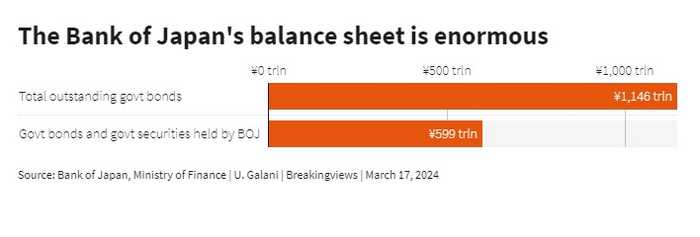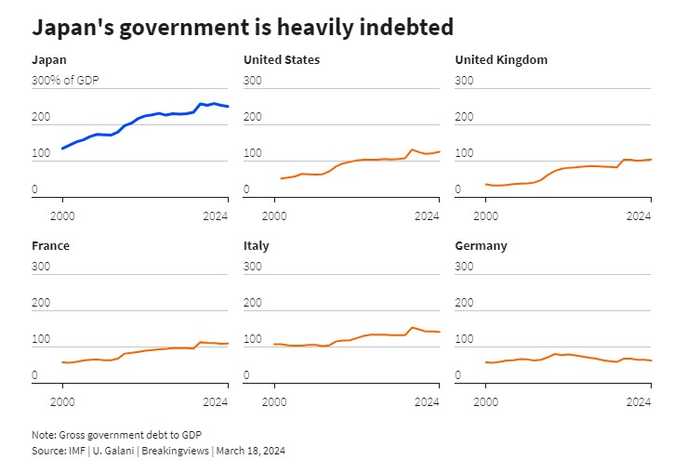Published 17:38 IST, March 19th 2024
Japan’s first step to new normal is the easiest
For the first time in 17 years, Japan will no longer have negative interest rates.
- Republic Business
- 3 min read

One and done?. Now for the hard part. The Bank of Japan on Tuesday scrapped negative interest rates, marking the end of more than two decades of extraordinary efforts to prevent the $4.2 trillion economy from stagnating. But the nine-member board led by Governor Kazuo Ueda looks divided and sounds tentative about reaching its 2% inflation target and sparking a “virtuous cycle” of growth. That makes the BOJ’s next steps perilous.
After months of speculation, the BOJ voted 7-to-2 to set short-term borrowing costs at around 0.0% to 0.1%. For the first time in 17 years, Japan will no longer have negative interest rates. Banks will now earn 0.1% interest on reserves parked with the BOJ, making it easier for them to top up their capital, instead of being charged for keeping some of their balances at the central bank. Ueda and his colleagues also ditched the 1% upper-bound yield target for 10-year government bonds – another unconventional policy that kept long-term rates low – but will continue buying sovereign debt and could ramp that up if there is a spike in long-term yields.
And the BOJ will stop purchases of exchange-traded funds, real estate investment trusts and corporate debt, easily the most controversial part of its policy. Markets responded calmly but oddly, with Japanese bond yields and the yen falling rather than rising in response to higher rates.

Ueda is taking a leap of faith. The economy just narrowly avoided recession and consumer expectations for price rises remain tepid. Indeed, workers were surprised last week that companies had agreed to wage increases far ahead of unions’ demands. The BOJ is still not confident it will sustainably hit its 2% target nor that wages at small companies will rise. Yet foreign investors and some economists worry rate-setters could soon have to fight an inflationary spiral, partly because of labour shortages in the ageing population.
And then there is the legacy of its unconventional policies. The BOJ needs a plan to shrink a balance sheet stuffed with about $4 trillion of government bonds and government securities. Its ETF portfolio alone might be worth 7% of the $6.4 trillion market capitalisation of the Tokyo Stock Exchange Prime market.

Japan doesn’t have a rule on how to deal with losses the BOJ will incur whenever it starts selling its bonds. That could become a problem if concerns about BOJ profitability add to households’ anxiety about Japan’s future, say BofA analysts. They note that the BOJ’s total assets are equivalent to 130% of nominal GDP, above the U.S. Federal Reserve’s 32% and the European Central Bank’s 53%. This makes Japan’s path towards higher rates uniquely fraught, and the social risk is exacerbated by government debt at 252% of GDP, nearly twice the ratio in the United States.
Japan has taken a step towards monetary policy normality, but the journey ahead is daunting.
Updated 17:38 IST, March 19th 2024